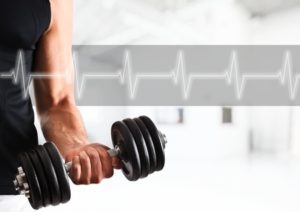Getting Older Doesn’t Have to Mean Becoming Weaker
 The body’s muscles play a vital role in health and wellness, and until the age of 30 they continue to grow longer and stronger. However, as you approach the big 4-0, your muscles will slowly but surely lose some of their mass and function. This occurs at an accelerated rate if you are inactive, but can still impact you if you’re physically fit. It’s an age-related trend called sarcopenia, but fortunately it can be prevented and minimized with certain exercise and diet choices.
The body’s muscles play a vital role in health and wellness, and until the age of 30 they continue to grow longer and stronger. However, as you approach the big 4-0, your muscles will slowly but surely lose some of their mass and function. This occurs at an accelerated rate if you are inactive, but can still impact you if you’re physically fit. It’s an age-related trend called sarcopenia, but fortunately it can be prevented and minimized with certain exercise and diet choices.
The Basics of Sarcopenia
Muscles give the body strength, so a body without adequate muscle mass is more prone to falling or becoming injured during daily activities. A small amount of muscle loss is to be expected, but without a healthy lifestyle muscle loss outpaces muscle gain and leads to dangerous frailty. The inability to lift even a small bag of groceries can strip someone of independence, making life more frustrating and stressful, especially for those over the age of 75.
Protein Intake
Inadequate protein intake is one leading cause of sarcopenia, although many elderly people eat enough protein but can’t digest and absorb it efficiently. This can be avoided by eating high-quality protein and fruits and vegetables instead of cereal grain foods. Many studies have found that potassium bicarbonate can serve as a “buffering agent” to prevent muscle loss as well.
Hormone Stabilization
It’s no secret that hormones become rather unpredictable with age, especially throughout menopause. Many essential hormones, including growth hormones, significantly decline with age and contribute to sarcopenia. This is easy enough to track with an annual blood test. Thanks to new advancements in bioidentical hormone replacement therapy, aging patients can still achieve equalized hormone levels to prevent further muscle loss and other unwanted side effects.
Exercise
It sounds obvious, but it still must be said. Muscles that continue to be challenged and built through daily exercise are less likely to diminish and weaken. Resistance training in particular can help build muscles , and 30 minutes of walking per day can help maintain healthy muscle mass in addition to providing important cardiovascular benefits.

